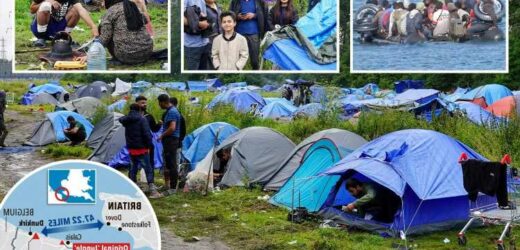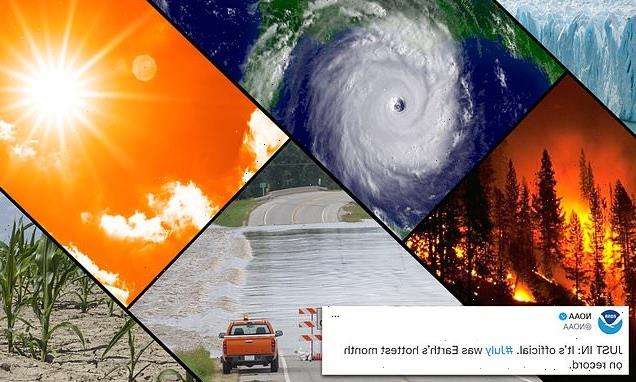IN the squalid new Jungle on the French coast, they wait for ruthless people-smugglers to come when darkness falls.
This sprawl of tarpaulin lean-tos at Grande-Synthe, close to historic Dunkirk, is where migrants broker the final leg of their journey to Britain.
It is a journey that cost a migrant his life on Thursday after a boat carrying about 40 people began to sink in the English Channel.
Before securing a place on a dinghy, the desperate and dispossessed must first brave this fetid shanty town where cartels do business at the barrel of a gun.
Emerging from his ramshackle tent, an Iraqi builder — who gave the name Ahmad Mohamad — told me in decent English: “The smugglers come at night. They have guns and they’re not afraid to fire them.
“There’s plenty of smugglers doing business but you have to choose the right one. They try to rip you off.”
Asked whether he used social media to find the smugglers, Ahmad, from Iraq’s Kurdish minority, laughed and said: “You don’t need Facebook, you just ask around the Jungle.”
The Jungle — which has makeshift shops and cafes to service as many as 500 migrants waiting for a place on a cross-Channel dinghy — was this week turned into a quagmire by rain.
Out of control
Walking past its kebab joints and grocery stores on Wednesday, Sun photographer Chris Eades and I were gruffly warned by a heavy-set, balding storekeeper: “No pictures!”
Profits from the rickety stores are skimmed off by the smuggling gangs.
Just ten minutes after we left the fly-blown encampment, where groups of children were laughing and playing in the sunshine, gunfire rang out.
An argument among two men at a kebab cafe had taken a sinister turn. A Dunkirk police source, who confirmed firearms were circulating in the camp, told The Sun: “Knives were shown to begin with, then one of the men took out a gun and shot the other in the right shin.
“There were about 200 migrants in the camp and many of them saw what happened but very few of them wanted to co-operate with the police, for obvious reasons.”
The gunman “raced into the woods” and hasn’t been identified. The injured man, an Iraqi in his 30s, was in a stable condition in Dunkirk Hospital on Thursday.
The attack has left locals fearing for their safety.
Yves Morel, who has lived in the area all his life, revealed: “Having hundreds of young men without papers living in the area is bad enough, but if they have started shooting each other, then the situation is out of control.”
The 52-year-old added: “Crime in the camps never stops, but nothing is done to shut them down for good.”
Scattered with dozens of discarded supermarket shopping trolleys, this lawless transit camp emerged among boggy woodland to the west of Dunkirk in April.
The notorious original Jungle, just under 25 miles down the coast in Calais, was once home to more than 7,000 migrants at a time.
Dismantled in 2016, that area and subsequent camps in scrubland to the east of the port are now guarded by ten-foot fencing.
Now the Grande-Synthe version, in the shadow of an industrial gas company, is the favoured way station for migrants seeking a new life in Britain. The camp is mostly made up of Iraqi and Iranian Kurds, a persecuted minority in their homelands, with small numbers of Eritreans and Vietnamese.
Small camps of other nationalities, including Afghans and Sudanese, are scattered from the Belgian border to Boulogne and beyond.
Vaping in their tarpaulin lean-to, friends Mira Ibrahimy, 26, and Aryas Shabany, 28, make the universal cut-throat sign when I ask what would happen if they returned to Iran
Articulate builder Ahmad, 39, who declined to be photographed, said he wants to go to Britain because he’s “seeking peace and freedom” which he calls “basic human rights”.
From the city of Halabja, where Saddam Hussein killed as many as 5,000 in a chemical weapons attack in 1988, Ahmad has been told he will need to pay £2,000 for a place on a boat. At the start of 2020 the price was £3,800. By September that year the cost per person had fallen to £2,500. The new cut-price fares follow a mushrooming of smuggling gangs who now use superdinghies capable of carrying up to 70 people.
Vaping in their tarpaulin lean-to, friends Mira Ibrahimy, 26, and Aryas Shabany, 28, make the universal cut-throat sign when I ask what would happen if they returned to Iran.
From the country’s Kurdish minority, they have already spent £7,200 to be smuggled via Turkey and Italy to France. Now they need to find a smuggler to arrange the final 21 miles of the journey across the choppy English Channel.
They have been quoted £1,800 — a bargain in the Channel smuggling business. Bearded Mira, who says he wants to be a chef in a restaurant if he reaches the UK, told me: “We know the waves are rough, we know it’s dangerous. But Iran is very dangerous for us too.”
Conditions in the Jungle mean many won’t spend long there, sometimes just enough time for clement weather to arrive for a smooth ride across the Channel.
One migrant tells me they use “nature’s toilet”, the marshy woodland surrounding the Jungle.
Among the detritus of camp life, Kurdish mum-of-three Shaida, 36, prepares tea and eggs for son Hama, 15, over paraffin-soaked branches scavenged from the forest. It is a pitiful scene, with Hama explaining: “We just want a better life.” Rotting baguettes are strewn among the debris of recently departed mi-grants, who take little on the onward journey to Britain.
A standpipe at the entrance to the camp is used for washing.
The extended Shapolk family, from the Iraqi city of Erbil, are worried that one of the children in their party is sick.
UK will be more lenient
The open-air toilets and lack of washing facilities mean people are prone to illness. A medic who volunteers at the camp says she has treated fungal infections, scabies, coughs and colds.
Avin Shapolk, 18, told me: “The conditions here are terrible. It’s cold at night and it floods when the rains come. We are desperate to get to Britain but have no idea where we will end up living.”
Voluntary groups hand out food and bring a charging point for mobile phones. Migrants’ phone sims are from locations including Austria, Germany, Italy and Turkey, which point to nations they have passed through.
Despite Jungle residents saying smuggling touts operate in the camp, I didn’t see any visible police presence on two visits on different days this week.
Many Iranian Kurds tell heart-wrenching stories of repression from authorities in their homelands.
One 28-year-old labourer said: “The Government is against us. We have no life in Iran.” Others have fled Iraqi badlands where the remnants of IS are holed up.
One Kurdish migrant admits he was a professional smuggler of champagne and whisky over the border between Iraq and dry Iran. He said there were no other jobs.
Another Iraqi tells me he has been living in Austria for the past two years, where he was declined residency. He believes the UK authorities will be more lenient.
Iranian Kurd Ahmad Hassan, 17, had been in the camp just two hours when I met him this week.
Desperate to study and work in the UK, he said: “My friends told me to come to the Jungle if I want to get to the UK. I heard about it in Iran.”
As we visited the camp, the French naval vessel the Flamant patrolled the Channel waters for dinghies off nearby Gravelines.
Yet the criminal networks appear able to defy the French authorities at will, with more than 10,000 migrants reaching Britain by small boat so far this year.
Others I spoke to in the camp say they will try their luck with stowing away on freight lorries bound for Britain.
Numerous efforts have been made to shut down camps that have sprung up around Grande-Synthe over a number of years.
Dunkirk’s sub-Prefect, Hervé Tourmente, said: “Legal proceedings have to be initiated. Once this happens, people are collected by coach and taken to centres where they can eat and sleep and begin asylum procedures which will allow them to stay in France.”
But Mr Tourmente concedes that many migrants are simply using France as a stepping stone to the UK.
A spokesman for the main North Prefecture, which covers Dunkirk, told The Sun: “Camps are shut down frequently, normally for hygiene reasons and also because of threats to public safety. All are monitored by the security services.”
Yet, the new Jungle — a haven for the smuggling cartels on French soil — remains.
A hellish place where many of the world’s neediest people are exploited by some of its most sinister.
Source: Read Full Article









